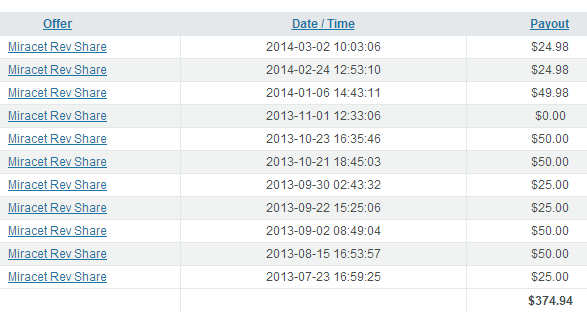The idea of joining a pay-per-click affiliate program sounds pretty cool. Regular affiliate programs pay a commission only after the person who clicks on your affiliate link proceeds to make a purchase, but “pay-per-click affiliate programs” pay you after each click — whether the click resulted in a sale or not.
So, who wouldn’t prefer to get paid per click rather than per sale?
Now, I’m sorry to burst your bubble, but the truth is you’d never find anything like that. I mean, there’s no such thing as a pay-per-click affiliate program! It only exists in the imaginations of newbies in online business who are proving smarter than reality. Or on pages authored by ill-informed bloggers or heartless scammers.
Through this post, I want to school you within the next fifteen minutes. Read on, as I reveal the truth you need to understand about pay-per-click programs, affiliate marketing, and related stuff.
To start with…
The two terms, “pay-per-click” and “affiliate marketing” should never exist in the same sentence because they represent totally different concepts in online marketing.
How pay-per-click programs work
A pay-per-click program pays you for each click on their ads by a visitor on your website or blog. This is how it works:
- An advertiser registers with the pay-per-click program
- They upload their ads and set their advertising prices and budgets
- The network then displays the ads on specified platforms — such as the top of search engine result pages, within mobile apps, and on websites and blogs owned by publishers who have registered with the network
- Each time an Internet user clicks on the ad wherever it’s displayed, the owner of that platform gets paid a fraction of the fee that the advertiser for that one click.
So, after each click, 3 things happen: The advertiser’s account is debited for the click, the publisher is credited, and the ad network takes its own cut.
Typically, pay-per-click programs don’t pay much for each click. Most of the time you’d be paid cents per click. But depending on how many clicks you generate from your visitors per day, your earnings can add up to a significant total at the end of each month.
Now, do you know why you’re paid no more than just cents for each click? Because a click is just what it is — a click! What matters most to advertisers is sales. Yet, most clicks don’t result in sales. On average, only 2% to 5% of clicks result in sales for most advertisers. Majority of the clicks are “wasted”.
Some visitors would click just to see what the advertiser’s website looks like. Some would click because they thought the ad linked to another page in the website. Some would click and then back out because the advertiser’s offers are too expensive or not suitable for them. And some would click just to test the left-click buttons on their mice or laptop mouse pads.
So, if advertisers were to pay higher amounts for each click, they’d be incurring huge losses from their pay-per-click ad campaigns. So, it makes business sense to cut down on risk by paying cents or a few dollars.
Examples of pay-per-click programs include Google Adsense and Media.net
How affiliate programs work
An affiliate program pays you for each successfully completed sales generated through your affiliate link. This is how it works:
- You register with an affiliate program or network.
- You’re given details on the affiliate commissions and other important stuff you need to know.
- You generate your custom affiliate links or banners and place those at strategic points on your site.
- Each time an Internet user clicks on your affiliate link or banner and goes on to purchase the product or service you’re promoting, you have the specified commission recorded in your account — to be paid after a specified period.
In comparison with pay-per-click systems, affiliate programs are more lucrative because you’re paid for giving advertisers exactly what they want — sales. There’s no gamble here since the advertiser doesn’t have to pay you a dime for clicks that don’t result in sales or for incomplete orders. Each time, they are paying for a confirmed win, and that’s why some affiliate programs pay $100 per sale and even more, depending on the cost of the offer involved.
Examples of affiliate programs include the Amazon Affiliate Program and Jumia Affiliate Program. For more on affiliate programs that are most suitable for Nigerians, read this post.
Why you won’t find “pay-per-click affiliate programs”
As stated earlier, a “pay-per-click” system is totally different from an affiliate “pay-per-sale” system. So, there’s no way you can have both merged together into one. It’s either you join a pay-per-click ad network or you register with an affiliate program or network. No company would pay for both clicks and sales in a single channel.
So, in all…
Stop looking for pay-per-click affiliate programs because you won’t find any. Stop chasing shadows. Choose between pay-per-click ad networks and affiliate networks (or both) and pitch your tent with whichever you deem suitable for you. In online business, there are no shortcuts!
Your thoughts
Do you have any contributions, questions, or objections? Share your thoughts by leaving a comment.






You must be logged in to post a comment.